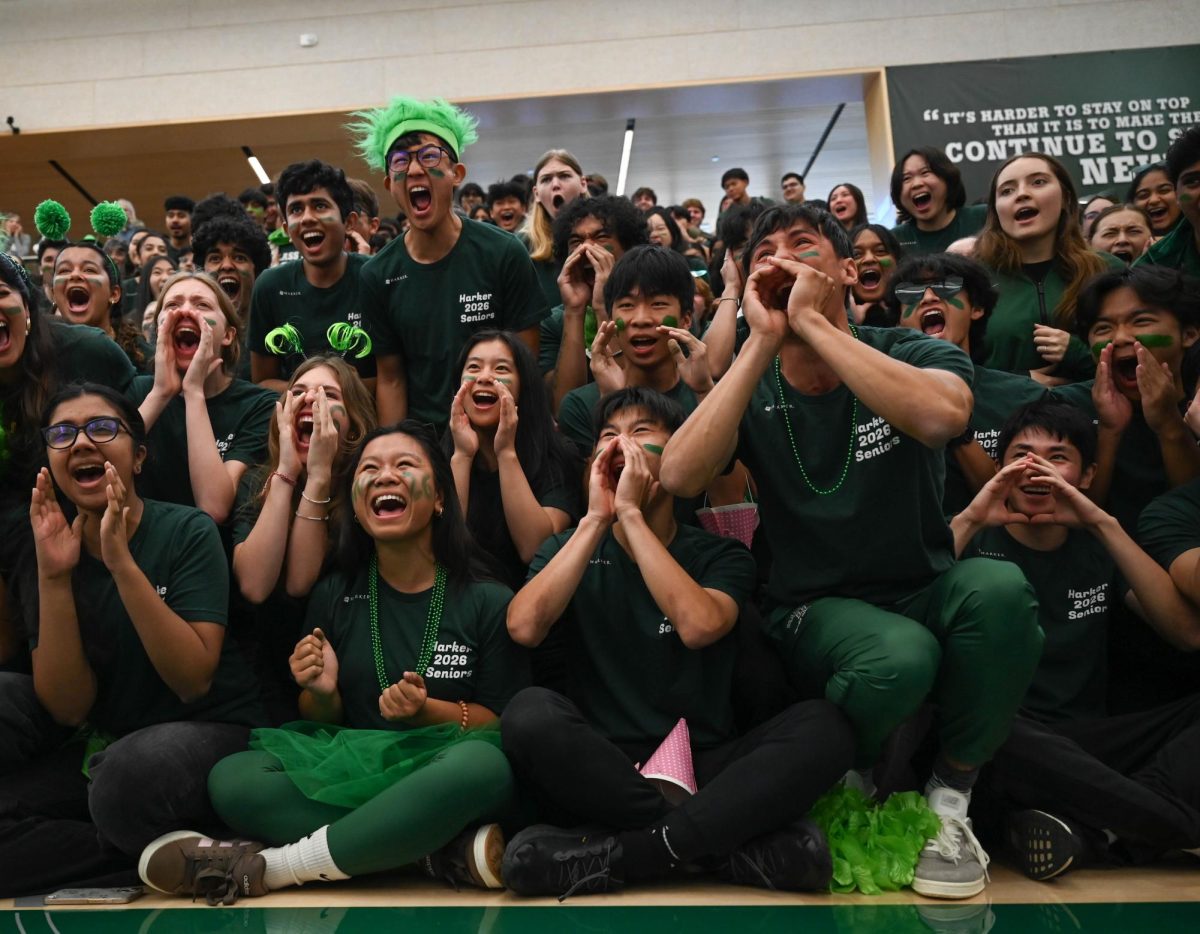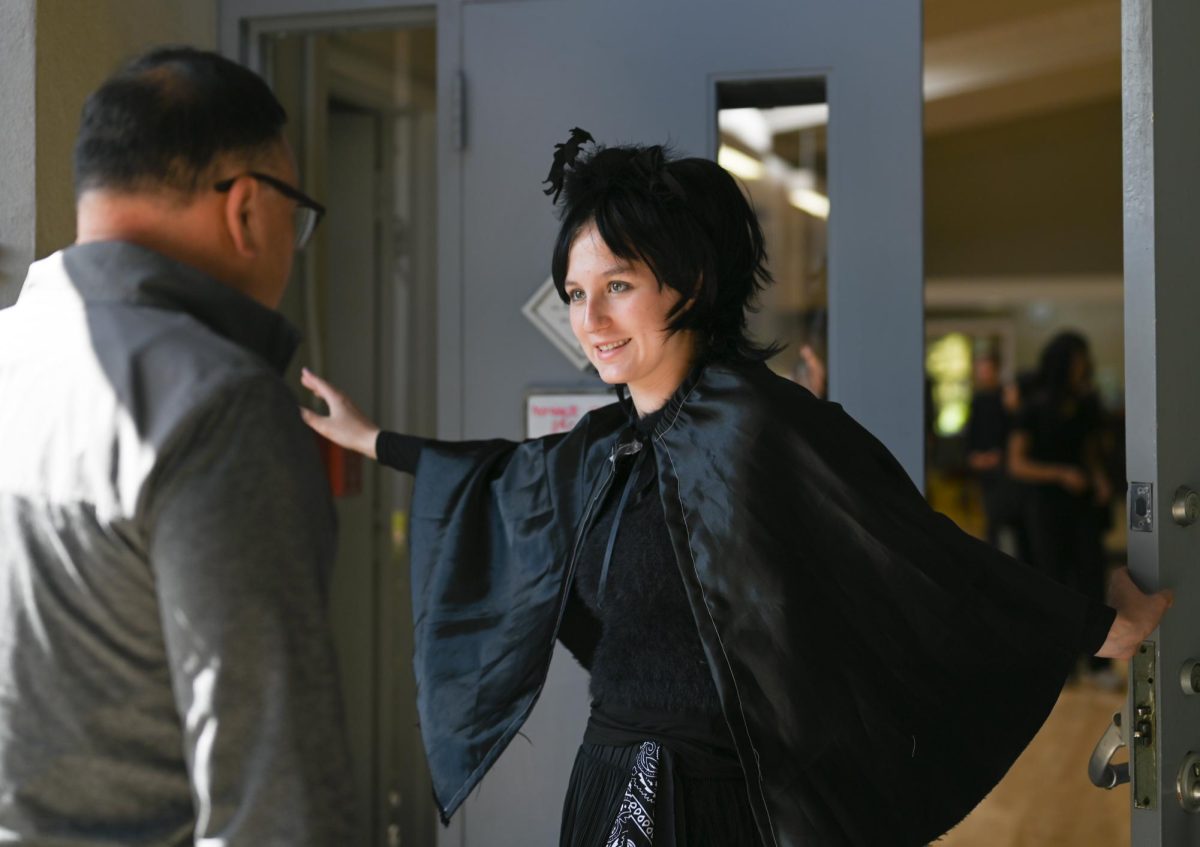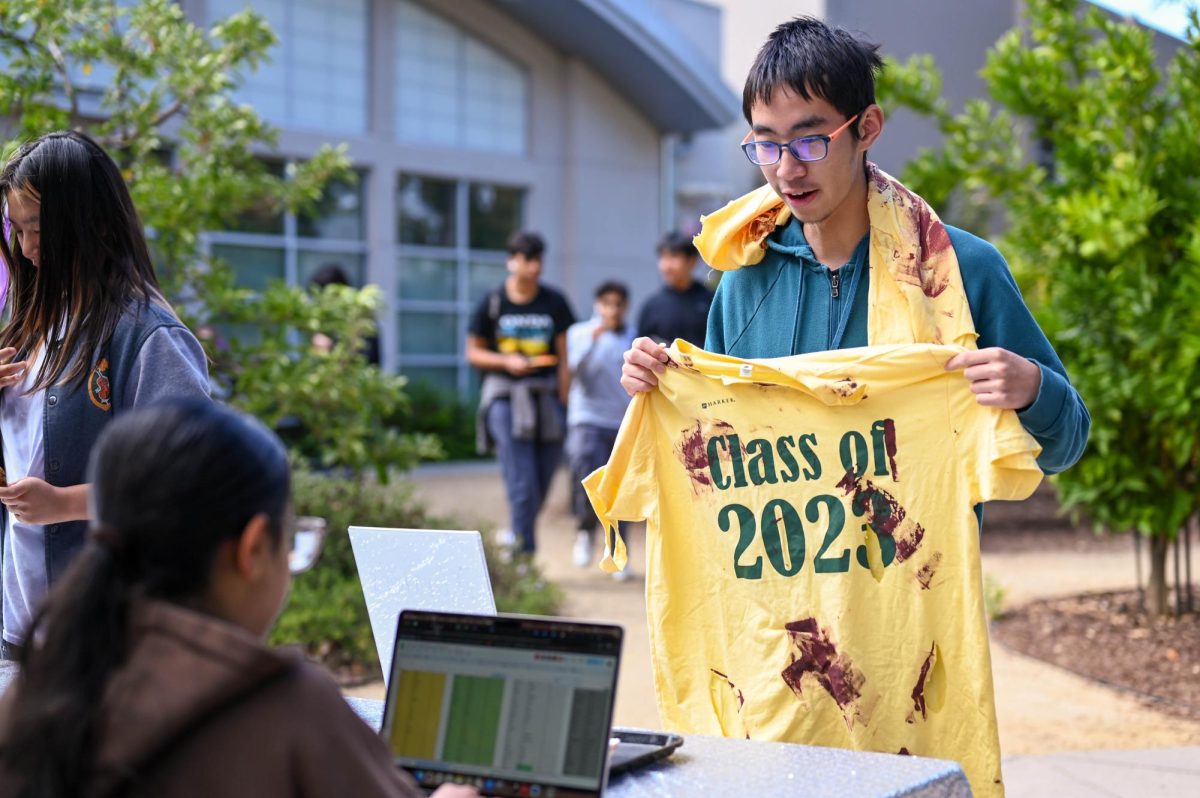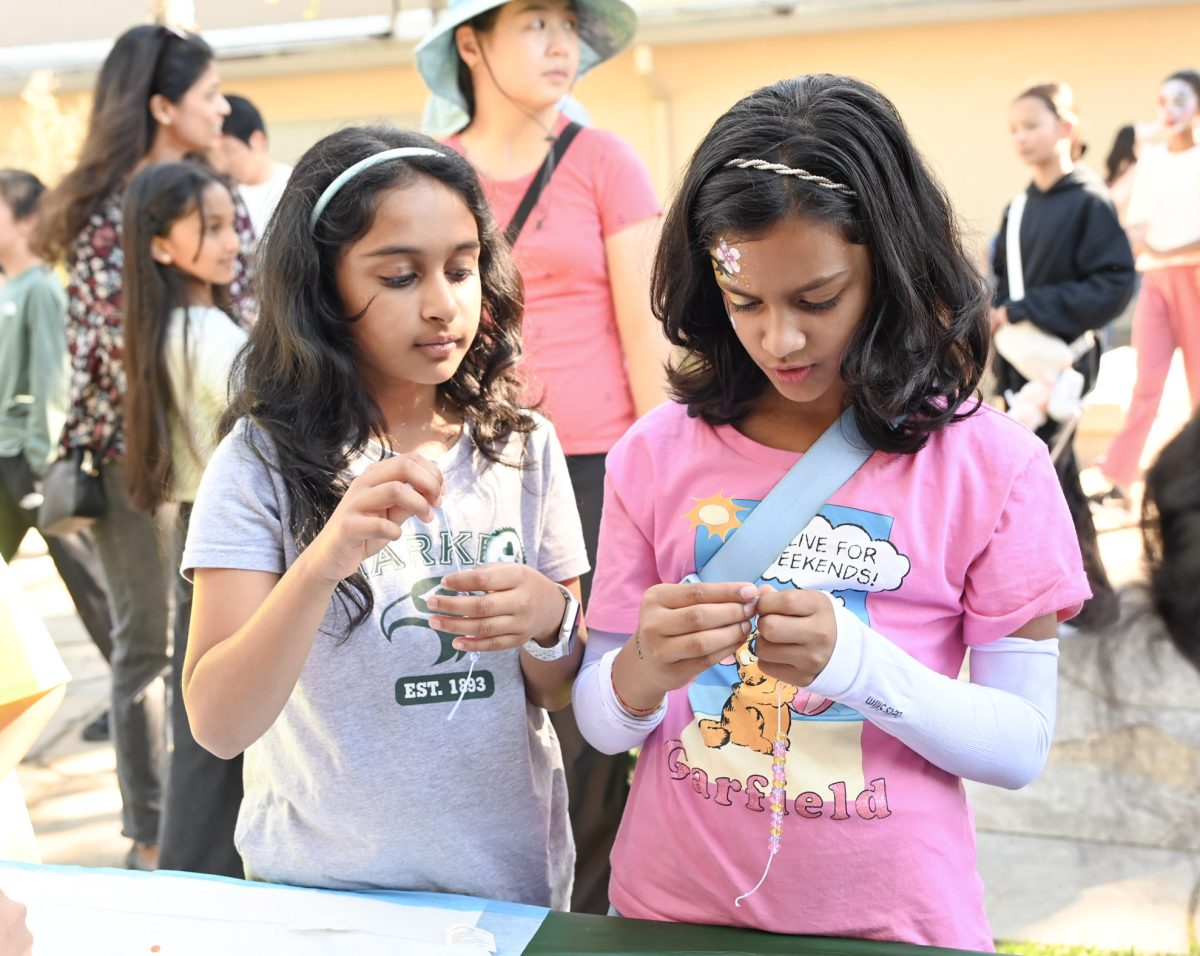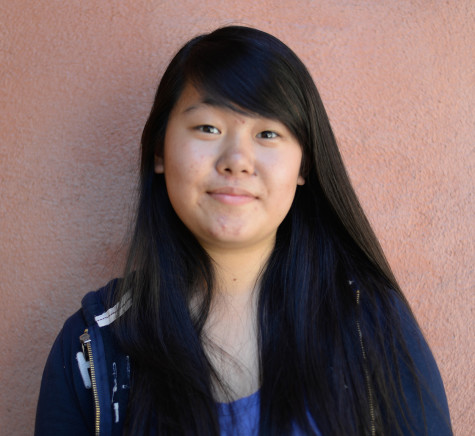Students gathered in the faculty dining room during lunch today to hear three doctors talk about their experiences at the Doctor Career Panel.
In the first career panel of the school year, the panelists were Dr. Stacey Law, an orthodontist working in private practice at the Adjunct Clinical Faculty – Craniofacial Anomalies Clinic at the Lucile Packard Children’s Hospital; Dr. Surendra Gudapati, an interventional cardiologist in private practice with the El Camino Hospital; and Dr. John Siegel, a general and trauma surgeon working at the Valley Medical Center. Students were invited to eat their lunch as the doctors spoke about their lives and also responded to questions.
The panel started off with introductions from each of the three doctors, who gave background information on their medical studies and professions. The doctors later answered students’ questions on a variety of topics, including those about the best and worst parts of being a doctor, choosing a field and medical school, and balancing family with work. They also elaborated on their training and work experience, providing perspective from three different fields of medicine.
Many attendees were students who had interests in pursuing a career in medicine and wanted to learn more about studying and working as a doctor.
“I’ve always wanted to go into medicine, but I never fully understood the commitment level until today, when they talked about how in some really specialized fields it takes 16 years,” Shivani Chandrashekaran (11) said.
When asked to give one piece of advice to students, Dr. Gudapati told them to be sure of their decision, as becoming a doctor is a long process, but one that pays off in the end. Dr. Siegel noted some challenges in his job, such as the busy schedule and time required for training, while Dr. Law told the female audience to be aware of possible sacrifices in having children and a family.
Most students enjoyed having a chance to talk to real doctors about their medical work experience and felt they gained valuable knowledge from the panel.
“You could know more about the actual situation instead of just making guesses about what you could possibly do to be a doctor. It was a lot more realistic,” Karen Qi (9) said.
The format of the career panel also interested some of the audience, who liked meeting with working doctors in person.
“It’s good to see what professionals have to say about their own professions and what they like about it and what the downsides of their jobs are,” Patrick Lin (10) said.
There are more career panels similar to the Doctor Career Panel planned for the future, with focuses on different professions.


















![“[Building nerf blasters] became this outlet of creativity for me that hasn't been matched by anything else. The process [of] making a build complete to your desire is such a painstakingly difficult process, but I've had to learn from [the skills needed from] soldering to proper painting. There's so many different options for everything, if you think about it, it exists. The best part is [that] if it doesn't exist, you can build it yourself," Ishaan Parate said.](https://harkeraquila.com/wp-content/uploads/2022/08/DSC_8149-900x604.jpg)




![“When I came into high school, I was ready to be a follower. But DECA was a game changer for me. It helped me overcome my fear of public speaking, and it's played such a major role in who I've become today. To be able to successfully lead a chapter of 150 students, an officer team and be one of the upperclassmen I once really admired is something I'm [really] proud of,” Anvitha Tummala ('21) said.](https://harkeraquila.com/wp-content/uploads/2021/07/Screen-Shot-2021-07-25-at-9.50.05-AM-900x594.png)







![“I think getting up in the morning and having a sense of purpose [is exciting]. I think without a certain amount of drive, life is kind of obsolete and mundane, and I think having that every single day is what makes each day unique and kind of makes life exciting,” Neymika Jain (12) said.](https://harkeraquila.com/wp-content/uploads/2017/06/Screen-Shot-2017-06-03-at-4.54.16-PM.png)








![“My slogan is ‘slow feet, don’t eat, and I’m hungry.’ You need to run fast to get where you are–you aren't going to get those championships if you aren't fast,” Angel Cervantes (12) said. “I want to do well in school on my tests and in track and win championships for my team. I live by that, [and] I can do that anywhere: in the classroom or on the field.”](https://harkeraquila.com/wp-content/uploads/2018/06/DSC5146-900x601.jpg)
![“[Volleyball has] taught me how to fall correctly, and another thing it taught is that you don’t have to be the best at something to be good at it. If you just hit the ball in a smart way, then it still scores points and you’re good at it. You could be a background player and still make a much bigger impact on the team than you would think,” Anya Gert (’20) said.](https://harkeraquila.com/wp-content/uploads/2020/06/AnnaGert_JinTuan_HoHPhotoEdited-600x900.jpeg)

![“I'm not nearly there yet, but [my confidence has] definitely been getting better since I was pretty shy and timid coming into Harker my freshman year. I know that there's a lot of people that are really confident in what they do, and I really admire them. Everyone's so driven and that has really pushed me to kind of try to find my own place in high school and be more confident,” Alyssa Huang (’20) said.](https://harkeraquila.com/wp-content/uploads/2020/06/AlyssaHuang_EmilyChen_HoHPhoto-900x749.jpeg)



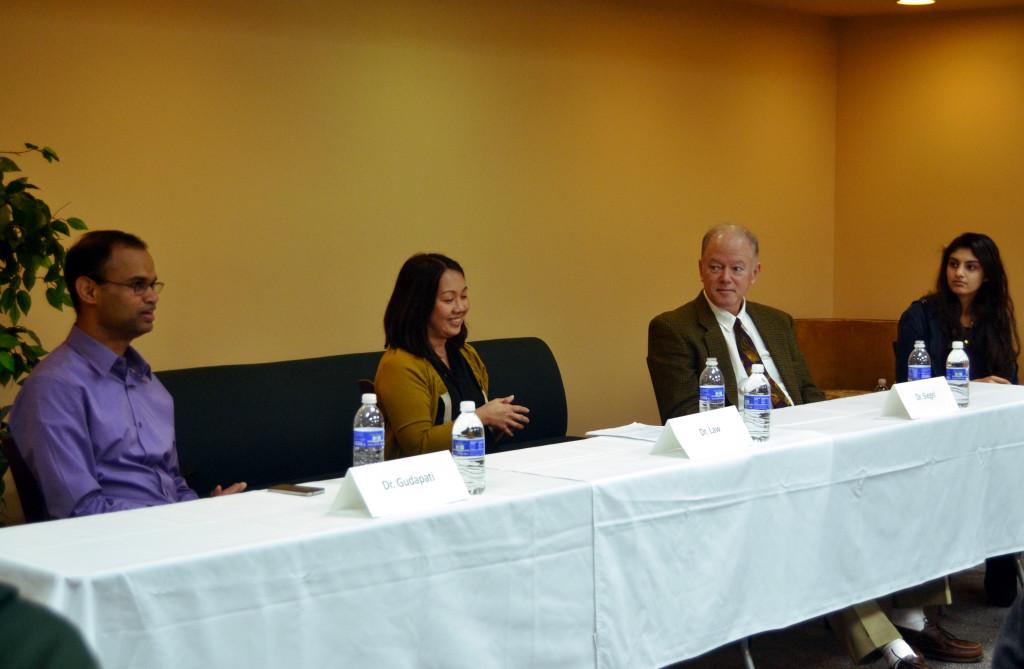
![LALC Vice President of External Affairs Raeanne Li (11) explains the International Phonetic Alphabet to attendees. "We decided to have more fun topics this year instead of just talking about the same things every year so our older members can also [enjoy],” Raeanne said.](https://harkeraquila.com/wp-content/uploads/2025/10/DSC_4627-1200x795.jpg)

